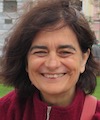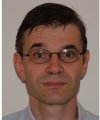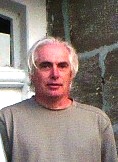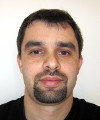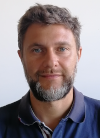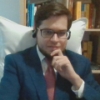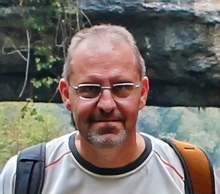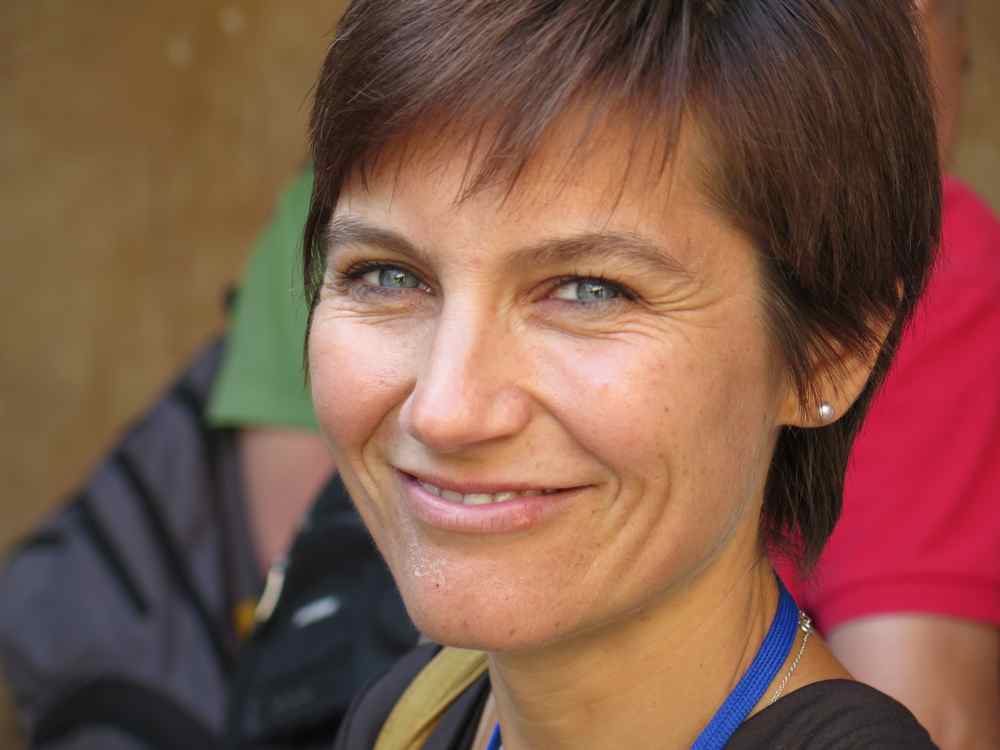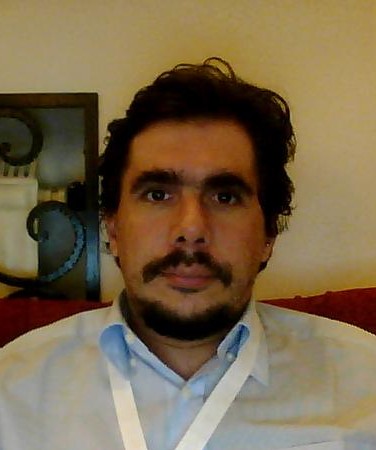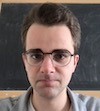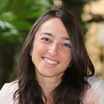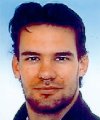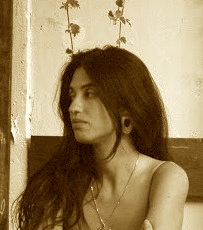Studying at the University of Verona
Here you can find information on the organisational aspects of the Programme, lecture timetables, learning activities and useful contact details for your time at the University, from enrolment to graduation.
Academic calendar
The academic calendar shows the deadlines and scheduled events that are relevant to students, teaching and technical-administrative staff of the University. Public holidays and University closures are also indicated. The academic year normally begins on 1 October each year and ends on 30 September of the following year.
Course calendar
The Academic Calendar sets out the degree programme lecture and exam timetables, as well as the relevant university closure dates..
| Period | From | To |
|---|---|---|
| Semester 1 | Oct 3, 2022 | Jan 27, 2023 |
| Semester 2 | Mar 6, 2023 | Jun 16, 2023 |
| Session | From | To |
|---|---|---|
| Sessione invernale d'esame | Jan 30, 2023 | Mar 3, 2023 |
| Sessione estiva d'esame | Jun 19, 2023 | Jul 31, 2023 |
| Sessione autunnale d'esame | Sep 4, 2023 | Sep 29, 2023 |
| Session | From | To |
|---|---|---|
| Sessione di laurea estiva | Jul 20, 2023 | Jul 20, 2023 |
| Sessione di laurea autunnale | Oct 12, 2023 | Oct 12, 2023 |
| Sessione di laurea invernale | Mar 14, 2024 | Mar 14, 2024 |
| Period | From | To |
|---|---|---|
| Ponte Festa di tutti i Santi | Oct 31, 2022 | Nov 1, 2022 |
| Ponte dell'Immacolata Concezione | Dec 8, 2022 | Dec 9, 2022 |
| Vacanze natalizie | Dec 23, 2022 | Jan 8, 2023 |
| Vacanze di Pasqua | Apr 7, 2023 | Apr 10, 2023 |
| Festa della Liberazione | Apr 24, 2023 | Apr 25, 2023 |
| Festa del lavoro | May 1, 2023 | May 1, 2023 |
| Festa del Santo Patrono | May 21, 2023 | May 21, 2023 |
| Festa della Repubblica | Jun 2, 2023 | Jun 2, 2023 |
| Chiusura estiva | Aug 14, 2023 | Aug 19, 2023 |
Exam calendar
Exam dates and rounds are managed by the relevant Science and Engineering Teaching and Student Services Unit.
To view all the exam sessions available, please use the Exam dashboard on ESSE3.
If you forgot your login details or have problems logging in, please contact the relevant IT HelpDesk, or check the login details recovery web page.
Should you have any doubts or questions, please check the Enrollment FAQs
Academic staff
 giulio.fellin@univr.it
giulio.fellin@univr.it
 rosanna.laking@univr.it
rosanna.laking@univr.it

Mazzuoccolo Giuseppe
 giuseppe.mazzuoccolo@univr.it
giuseppe.mazzuoccolo@univr.it
 +39 0458027838
+39 0458027838
 ramon.oliverbonafoux@univr.it
ramon.oliverbonafoux@univr.it
 daniela.pianezzi@univr.it
daniela.pianezzi@univr.it
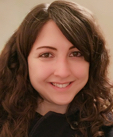
Raffaele Alice
 alice.raffaele@univr.it
alice.raffaele@univr.it
 claudio.tomazzoli@univr.it
claudio.tomazzoli@univr.it
Study Plan
The Study Plan includes all modules, teaching and learning activities that each student will need to undertake during their time at the University.
Please select your Study Plan based on your enrollment year.
1° Year
| Modules | Credits | TAF | SSD |
|---|
| Modules | Credits | TAF | SSD |
|---|
| Modules | Credits | TAF | SSD |
|---|
1 module between the following (a.a. 2022/23 Computational Algebra not activated; a.a. 2023/24 Homological Algebra not activated)1 module between the following 3 modules among the followingLegend | Type of training activity (TTA)
TAF (Type of Educational Activity) All courses and activities are classified into different types of educational activities, indicated by a letter.
Type D and Type F activities
Type D learning activities are the student's choice, type F activities are additional knowledge useful for job placement (internships, transversal skills, project works, etc.). According to the Teaching Regulations of the Course, some activities can be chosen and entered independently in the booklet, others must be approved by a special committee to verify their consistency with the study plan. Type D or F learning activities can be covered by the following activities.
1. Modules taught at the University of Verona
Include the modules listed below and/or in the Course Catalogue (which can also be filtered by language of delivery via Advanced Search).
Booklet entry mode: if the teaching is included among those listed below, the student can enter it independently during the period in which the curriculum is open; otherwise, the student must make a request to the Secretariat, sending the form to carriere.scienze@ateneo.univr.it during the period indicated.
2. CLA certificate or language equivalency
In addition to those required by the curriculum/study plan, the following are recognized for those matriculated from A.Y. 2021/2022:
- English language: 3 CFUs are recognized for each level of proficiency above that required by the course of study (if not already recognized in the previous course of study).
- Other languages and Italian for foreigners: 3 CFUs are recognized for each proficiency level starting from A2 (if not already recognized in the previous study cycle).
These CFUs will be recognized, up to a maximum of 6 CFUs in total, of type F if the study plan allows it, or of type D. Additional elective credits for language knowledge may be recognized only if consistent with the student's educational project and if adequately justified.
Those enrolled until A.Y. 2020/2021 should consult the information found here.
Method of inclusion in the booklet: request the certificate or equivalency from CLA and send it to the Student Secretariat - Careers for the inclusion of the exam in the career, by email: carriere.scienze@ateneo.univr.it
3. Transversal skills
Discover the training paths promoted by the University's TALC - Teaching and learning center intended for students regularly enrolled in the academic year of course delivery https://talc.univr.it/it/competenze-trasversali
Mode of inclusion in the booklet: the teaching is not expected to be included in the curriculum. Only upon obtaining the Open Badge will the booklet CFUs be automatically validated. The registration of CFUs in career is not instantaneous, but there will be some technical time to wait.
4. CONTAMINATION LAB
The Contamination Lab Verona (CLab Verona) is an experiential course with modules on innovation and enterprise culture that offers the opportunity to work in teams with students from all areas to solve challenges set by companies and organisations.
Upon completion of a CLab, students will be entitled to receive 6 CFU (D- or F-type credits).
Find out more: https://www.univr.it/clabverona
PLEASE NOTE: In order to be admitted to any teaching activities, including those of your choice, you must be enrolled in the academic year in which the activities in question are offered. Students who are about to graduate in the December and April sessions are therefore advised NOT to undertake extracurricular activities in the new academic year in which they are not enrolled, as these graduation sessions are valid for students enrolled in the previous academic year. Therefore, students who undertake an activity in an academic year in which they are not enrolled will not be granted CFU credits.
5. Internship/internship period
In addition to the CFUs stipulated in the curriculum/study plan (check carefully what is indicated on the Teaching Regulations): here information on how to activate the internship.
Check in the regulations which activities can be Type D and which can be Type F.
Modules and other activities that can be entered independently in the booklet
| years | Modules | TAF | Teacher | |
|---|---|---|---|---|
| 1° | Genetics | D |
Massimo Delledonne
(Coordinator)
|
|
| 1° 2° | Algorithms | D |
Roberto Segala
(Coordinator)
|
|
| 1° 2° | Introduction to Docker | D |
Franco Fummi
(Coordinator)
|
|
| 1° 2° | Mobile app design by using React Native | D |
Graziano Pravadelli
(Coordinator)
|
|
| years | Modules | TAF | Teacher |
|---|---|---|---|
| 1° 2° | Algorithms | D |
Roberto Segala
(Coordinator)
|
| 1° 2° | LaTeX Language | D |
Enrico Gregorio
(Coordinator)
|
| 1° 2° | Python programming language | D |
Carlo Combi
(Coordinator)
|
| 1° 2° | Organization Studies | D |
Serena Cubico
(Coordinator)
|
| 1° 2° | History and Didactics of Geology | D |
Guido Gonzato
(Coordinator)
|
| years | Modules | TAF | Teacher |
|---|---|---|---|
| 1° 2° | ECMI modelling week | F | Not yet assigned |
| 1° 2° | ESA Summer of code in space (SOCIS) | F | Not yet assigned |
| 1° 2° | Federated learning from zero to hero | D |
Gloria Menegaz
|
| 1° 2° | Google summer of code (GSOC) | F | Not yet assigned |
| 1° 2° | Mathematics mini courses |
Paolo Dai Pra
(Coordinator)
|
Mathematical Methods for Computer Science (2022/2023)
Teaching code
4S001438
Teacher
Coordinator
Credits
6
Language
English
Scientific Disciplinary Sector (SSD)
INF/01 - INFORMATICS
Period
Semester 1 dal Oct 3, 2022 al Jan 27, 2023.
Learning objectives
The course aim is exploring the fundamentals of algorithms, programming languages and paradigms in a didactic and applicative perspective. We will analyze, plan and develop methodologies for teaching and learning informatics as a scientific discipline and, in particular, the use of programming languages. Techniques of constructive problem solving and cooperative development methodologies will be examined. At the end of the course the student shall have achieved - familiarity with the fundamental principles of the different languages; - confidence with the different programming styles; - practical knowledge of at least two programming languages; - ability to deal with any programming language or environment for the development of solutions; - mastery in using the knowledge and skills acquired both in an educational and in an applicative context.
Prerequisites and basic notions
For participation in the course activities, some specific knowledge and skills in computer science and mathematics are useful:
- familiarity with the use of the computer and, in particular, with the editor and terminal;
- knowledge of at least one programming language;
- ability to write code in imperative style;
- elements of logic and deductive systems.
Program
The course deals with some fundamental topics of computer science, introduces methodologies for the development and coding of solutions, explores the languages and paradigms of programming.
In particular, during the course, the topics and activities described below will be developed.
- Algorithms and effective computing systems:
- Abstract machines,
- Computable and recursive functions,
- Rewriting systems,
- Specific computational models.
- Types, Logic and Data Structures.
- Programming paradigms: imperative, functional, functional, object-oriented.
- Fundamentals of functional and object-oriented programming.
- Introduction to some paradigmatic programming languages
- Development of projects and activities of educational and/or application interest.
In the development of the course, some teaching and learning methodologies will be addressed.
Bibliography
Didactic methods
The teaching activity will generally develop from one of the topics of the course as follows:
- introduction to the topic;
- deepening of the related topics and with consequent discussion;
- preparation of an activity related to the topic covered;
- development of the activity and
- presentation of the same with final discussion.
Part of the work can be developed autonomously by the students according to their inclination and the result discussed with the teacher and other students.
The activities will be able to emphasize the educational, foundational or application aspects according to the nature of the theme.
The methods study and development activities may vary in relation to the needs of course.
Learning assessment procedures
The final exam usually consists of a written test and an oral interview.
The written test covers the topics developed in class and includes general questions, exercises and the development of a theme.
The oral interview concerns the written work, the activity carried out and, in general, the topics of the course.
Admission to the oral interview is conditioned by passing the written test.
The written test can be partially replaced by partial tests or by the development of activities agreed with the teacher.
Evaluation criteria
The candidate must show that he has achieved the following knowledge and skills.
Understand and know how to effectively use the fundamental principles of programming languages and paradigms.
To know the mathematical foundations of programming languages.
Be able to use at least one programming language, know its fundamental aspects and the relevant problems related to its use.
Knowing how to use the knowledge and experience acquired in an application and educational field.
Criteria for the composition of the final grade
The final vote is given by the average evaluation of the written paper and the final interview.
Exam language
Inglese
Career prospects
Module/Programme news
News for students
There you will find information, resources and services useful during your time at the University (Student’s exam record, your study plan on ESSE3, Distance Learning courses, university email account, office forms, administrative procedures, etc.). You can log into MyUnivr with your GIA login details: only in this way will you be able to receive notification of all the notices from your teachers and your secretariat via email and soon also via the Univr app.
Double degree
The University of Verona, through a network of agreements with foreign universities, offers international courses that enable students to gain a Double/Joint degree at the time of graduation. Indeed, students enrolled in a Double/Joint degree programme will be able to obtain both the degree of the University of Verona and the degree issued by the Partner University abroad - where they are expected to attend part of the programme -, in the time it normally takes to gain a common Master’s degree. The institutions concerned shall ensure that both degrees are recognised in the two countries.
Places on these programmes are limited, and admissions and any applicable grants are subject to applicants being selected in a specific Call for applications.
It's online Erasmus + - double joint degree a.y. 2024/2025
The latest Call for applications for Double/Joint Degrees at the University of Verona is available now!
For the presentation of the LA and subsequent recognition of CFUs, please refer to the International Mobility Regulations.
Documents
| Title | Info File |
|---|---|
|
|
pdf, it, 461 KB, 24/11/23 |
|
|
pdf, it, 361 KB, 23/02/24 |
Alternative learning activities
In order to make the study path more flexible, it is possible to request the substitution of some modules with others of the same course of study in Mathematics at the University of Verona (if the educational objectives of the modules to be substituted have already been achieved in the previous career), or with others of the course of study in Mathematics at the University of Trento.Documents
| Title | Info File |
|---|---|
|
|
pdf, it, 167 KB, 27/08/21 |
|
|
pdf, it, 44 KB, 30/08/21 |
|
|
pdf, it, 113 KB, 30/08/21 |
Attendance
As stated in the Teaching Regulations for the A.Y. 2022/2023, except for specific practical or lab activities, attendance is not mandatory. Regarding these activities, please see the web page of each module for information on the number of hours that must be attended on-site.
Career management
Student login and resources
Graduation
Deadlines and administrative fulfilments
For deadlines, administrative fulfilments and notices on graduation sessions, please refer to the Graduation Sessions - Science and Engineering service.
Need to activate a thesis internship
For thesis-related internships, it is not always necessary to activate an internship through the Internship Office. For further information, please consult the dedicated document, which can be found in the 'Documents' section of the Internships and work orientation - Science e Engineering service.
Final examination regulations
Upon completion of the Master’s degree dissertation students are awarded 32 CFU. The final examination consists of a written dissertation on a specific topic agreed with a supervising professor and presented to a commission (Dissertation Committee).
The dissertation can be high-level theoretical or experimental (in the latter case, it may focus on either basic or applied research), it can deal with a theoretical topic or propose the resolution of a specific problem, or description of a work project, and may be carried out at universities, research institutions, schools, laboratories and companies in the framework of internships, traineeships, study stays in Italy and abroad. The dissertation must be original and written by the student under the guidance of a Supervisor. At the request of the student, the dissertation may be written and presented in Italian.
Professors belonging to the Mathematics Teaching Committee, the Department of Computer Science, and any associated departments may be appointed as Supervisors, as well as any professors from the University of Verona whose area of interest (SSD - Scientific-disciplinary Sector) is included in the teaching regulations of the degree programme.
Students may take the final exam only if meeting all requirements set by the School of Sciences and Engineering.
The Master's degree in Mathematics is obtained by successfully passing the final examination and thus earning the 120 CFU included in the study plan.
The material submitted by the student for the final examination will be examined by the Dissertation Committee, which comprises three professors, possibly including the Supervisor, and appointed by the President of the Teaching Committee. The final examination will be assessed based on the following criteria: the student’s performance during the entire study programme, the knowledge acquired during the dissertation work, their understanding of the topic and autonomy of judgment, their ability to apply such knowledge, and communicate effectively and fully all the outcomes of the work and the main results obtained.
The final examination and the degree ceremony will be carried out, in one of the four graduation sessions throughout the academic year, by the Final Examination Committee appointed by the President of the Teaching Committee, and made up of a president and at least four members chosen from among the professors of the University.
For further information, please refer to the Final examination regulations.
Documents
| Title | Info File |
|---|---|
|
|
pdf, it, 31 KB, 02/11/22 |
|
|
pdf, en, 31 KB, 02/11/22 |
|
|
pdf, it, 171 KB, 20/03/24 |
List of theses and work experience proposals
| theses proposals | Research area |
|---|---|
| Controllo di sistemi multiagente | Calculus of variations and optimal control; optimization - Hamilton-Jacobi theories, including dynamic programming |
| Controllo di sistemi multiagente | Calculus of variations and optimal control; optimization - Manifolds |
| Controllo di sistemi multiagente | Calculus of variations and optimal control; optimization - Optimality conditions |
| Formule di rappresentazione per gradienti generalizzati | Mathematics - Analysis |
| Formule di rappresentazione per gradienti generalizzati | Mathematics - Mathematics |
| Mathematics Bachelor and Master thesis titles | Various topics |
| Stage | Research area |
|---|---|
| Internship proposals for students in mathematics | Various topics |


